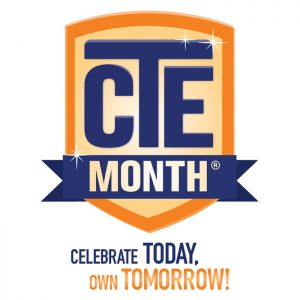February is Career and Technical Education Month, when the Association of Career and Technical Education (ACTE) focuses on spreading the word about the benefits and successes of career and technical programs.
 Career and technical education (CTE) focuses on programs designed to prepare students for high-wage, high-demand careers—a goal that’s completely in step with CareerOneStop’s mission of helping individuals develop their capacity and make sound career, training, and job decisions in the new economy. So we went to ACTE’s website to learn more about the how an why students of all ages can benefit from career and technical education.
Career and technical education (CTE) focuses on programs designed to prepare students for high-wage, high-demand careers—a goal that’s completely in step with CareerOneStop’s mission of helping individuals develop their capacity and make sound career, training, and job decisions in the new economy. So we went to ACTE’s website to learn more about the how an why students of all ages can benefit from career and technical education.
To start with, we learned that CTE doesn’t focus exclusively on manufacturing or other blue collar careers. In fact, it covers many different fields, including health care, information technology, advanced manufacturing, hospitality and management and many more. Here’s more of what we learned:
CTE benefits a wide variety of high school students:
- Taking one CTE class for every two academic classes minimizes the risk of students dropping out of high school.
- The average high school graduation rate for students concentrating in CTE programs is 93 percent, compared to an average national freshman graduation rate of 80 percent.
- 91 percent of high school graduates who earned 2-3 CTE credits enrolled in college.
CTE benefits college students and adults:
- Students can attend public community and technical colleges for a fraction of the cost of tuition at other institutions: $3,520, on average, in 2016-2017.
- According to research in Texas, Colorado and Virginia, graduates with technical or applied science associate degrees out-earn bachelor’s degree holders by $2,000 to $11,000.
- 27 percent of people with less than an associate degree, including licenses and certificates, earn more than the average bachelor’s degree recipient.
Think a CTE program might be right for you?
Visit Local Training Finder to locate community and technical colleges in your area. Search by program type if you have a career of interest in mind, or contact the schools to see what programs they have available.
You can also get started at the Interest Assessment, where you can identify career that match your interests–and then see what type of training is required.
